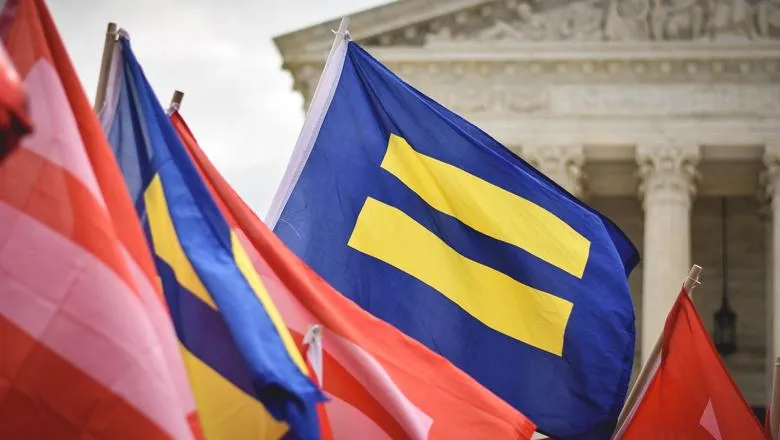22 February 2021
Do Same-sex Marriage Laws Improve Credit Access for Same-sex Couples?
Dr Duc Duy (Louis) Nguyen, Senior Lecturer in Finance
Landmark legislation alone will not ensure economic equality

President Joe Biden has committed his administration to being the “most pro-equality administration in history”. Among his first legislative acts is a $1.9 trillion stimulus plan aimed at supporting those affected by the COVID-19 pandemic and closing the widening wealth gap it is causing. He made addressing social inequality an election pledge, vowing that in his first 100 days in office he would sign into law the Equality Act. This Act will prohibit discrimination on the basis of sexual orientation and gender identity in employment, public education, federal funding, jury system, housing, and credit access.
My recent research examines how social and economic inequality intertwine, and whether past attempts at addressing social inequality also reduce economic inequality.
Do more equality laws lead to greater equality?
Working with colleagues at the University of Edinburgh Business School, I have looked at whether and how equality laws affect equality in access to credit. We looked at mortgage applications before and after various same-sex marriage legalisations in the United States between 2004 and until the enactment of Obergefell v. Hodges in 2015. This was the Supreme Court judgement that ruled that same sex couples had the fundamental right to marry on the same terms and conditions as opposite-sex couples.
Looking at mortgage applications before state-level same-sex marriage legalisation, we found what we call a “denial gap” between same-sex and different-sex mortgage applications: mortgage applications made by same-sex couples are 4.07% more likely to be denied compare to different-sex couples, who are otherwise identical in terms of income, amount of loan applied, residential location, and other demographic characteristics.
After same-sex marriage legalisations, we observed that there was generally an increase in mortgage applications from same sex couples, but this denial gap widened to 4.95%. Our results suggest that same-sex couples were worse off in term of access to credit after their state recognised marriage equality. This was true across the board: the widening denial gap was not more marked in socially more conservative states.
Our results do not suggest that this increase in denial gap comes from “opinion backlash” – there was no evidence that same-sex marriage legalisation caused greater disapproval of same-sex relationships and that loan officers were denying same-sex couples mortgages for non-economic reasons. Nor did we find evidence that loan for same-sex applications.
Instead, our results suggest that, when making decisions on same-sex applications, loan officers use less “soft information” such as employment stability, the quality of the data submitted, or the applicants’ emotional attachment to the property, than when processing opposite-sex applications. Instead, they rely more on “hard information” such as reported income and credit history.
“Soft information” comes through conversations. It is more difficult to collect and process, but it can help move the needle toward positive lending decisions. Our findings do not suggest that the denial gap is due to active discrimination. Instead, our evidence suggests that credit officers may find it more challenging to gain and draw on “soft information” from potential borrowers they feel less familiar with, and therefore find it more difficult to use their discretion to approve credit to same-sex borrowers.
Why is equality in the credit market important?
Housing is a key driver of an individual’s wealth creation. Most importantly, housing is the largest asset most people ever own, and for the vast majority of us, the only asset that we can invest in without leverage. The historically strong performance of the housing market means that having access to housing from a young age allows individuals with a relatively modest income to accumulate wealth over their lives and pass it on to the next generation. Therefore, unequal access to mortgage credit can significantly undermine equality of opportunity and social mobility.
Our evidence suggests that, while equality legislation is vital, it is, by itself, not enough to address the economic inequality that can arise from social inequality. Without any overtly discriminatory practice, we can still observe the disparate impact in the form of higher denial rate among same-sex borrowers. “Equal treatment” of all borrowers may still lead to “unequal outcome” for sexual minorities until mortgage providers can guarantee that their mortgage staff are able to gather and interpret the ‘soft’ clues from (among other things) conversations with same-sex couples with the same ease that they engage with opposite sex couples.
